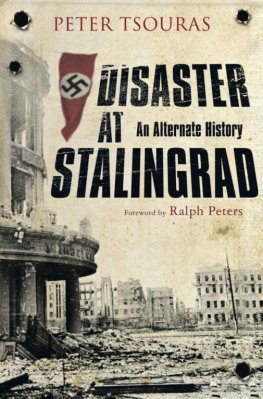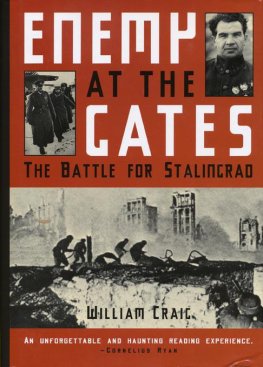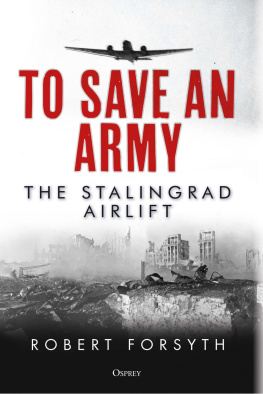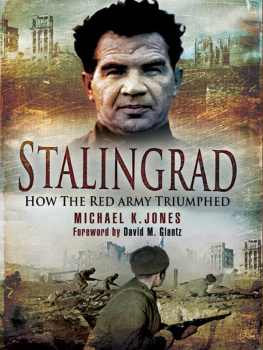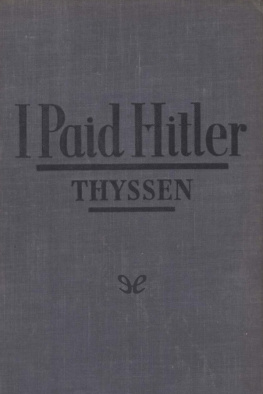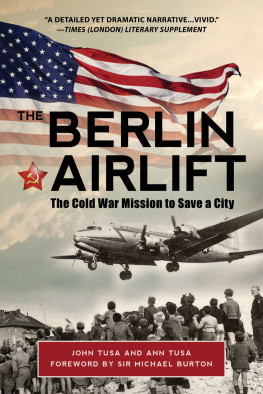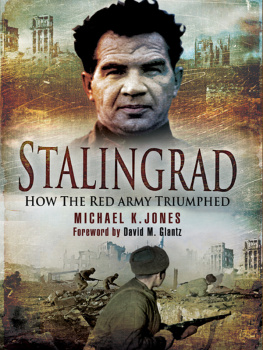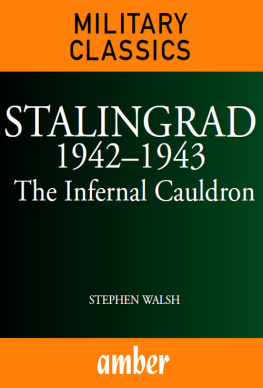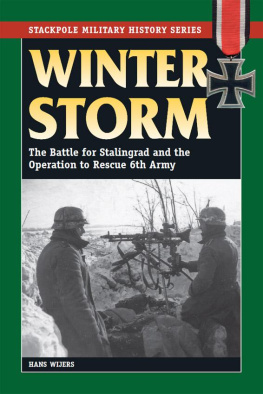
This edition is published by PICKLE PARTNERS PUBLISHINGwww.picklepartnerspublishing.com
To join our mailing list for new titles or for issues with our books picklepublishing@gmail.com
Or on Facebook
Text originally published in 1997 under the same title.
Pickle Partners Publishing 2014, all rights reserved. No part of this publication may be reproduced, stored in a retrieval system or transmitted by any means, electrical, mechanical or otherwise without the written permission of the copyright holder.
Publishers Note
Although in most cases we have retained the Authors original spelling and grammar to authentically reproduce the work of the Author and the original intent of such material, some additional notes and clarifications have been added for the modern readers benefit.
We have also made every effort to include all maps and illustrations of the original edition the limitations of formatting do not allow of including larger maps, we will upload as many of these maps as possible.
A DESPERATE STRUGGLE TO SAVE A CONDEMNED ARMY A CRITICAL REVIEW OF THE STALINGRAD AIRLIFT
by
Major Mike Thyssen
TABLE OF CONTENTS
Contents
TABLE OF CONTENTS
REQUEST FROM THE PUBLISHER
Preface
I embarked on this project because I have long been interested in the most traumatic battle experience for the German soldier of World War II. In only three months, a single battle cost the German nation five or six times the casualties the United States suffered during the entire war in Vietnam. Considering Germany had less than half the population, a comparable loss would approach a million casualties for the U.S. The terrible trauma of Southeast Asia shook this nation deeply and one can only imagine the effect of Stalingrad on Germany in 1943. Few German families were left unscathed by this tragedyfortunately mine was one.
My ancestors, none of whom actually fought in the war, are from eastern and central Germany. My father and his family endured and survived the Allied Combined Bomber Offensive, while relatives on my mothers side suffered the wrath of the advancing Red Army. My intention is not to downplay the atrocities committed by Germans during the war, which were clearly unpardonable, but to remind the reader that millions of innocents also died on the Axis side. Among them were thousands of young soldiers whose only crime was patriotically fighting for their Vaterland. Trapped, frozen, and starving, they suffered in Stalingrad during the terrible winter of 1942/43. Almost all who survived and were captured later died in Soviet captivity. This is the story of the brave men who struggled to save them.
This paper frequently refers to statistics collected by the Germans during the campaign, including casualties, numbers of sorties flown, and tonnage of supplies delivered. The astute reader will notice that many of these conflict between credible primary sources, including the records of Milch, Fiebig, Pickert, and von Rohden. Many of the variances can probably be attributed to different methods regarding the accounting of the loads (much of which was presumably estimated), the differences in what was sent and what was actually received at the other end (losses due to crashes, airdropped but unrecovered items, etc.), or human error. Occasionally the differences were significant and caused me some consternation, much thought, but ultimately led to no easy explanation. What was clear, however, was that the amount delivered never reached the 500 tons per day that the Sixth Army needed.
I would like to thank Dr. Richard Muller for his patient help, inspiration, and encouragement. Many thanks also go to my wife, Nannette, for all her support and for putting up with me during this project, and to my 4 year old son, Matteo, who wondered why I was spending so much time working on a computer which clearly was not as much fun as others he had seen.
Abstract
Stalingrad is often described as the turning point of the German war with the Soviet Union, or perhaps even the entire European war. This paper argues that the actual turning point was probably earlier in the Barbarossa campaign, and that the decision to hold Stalingrad, while a serious mistake, followed several other strategic blunders of Adolf Hitler.
Given that, this essay reflects a study of primary source material collected from key German commanders, as well as numerous documents collected in 1956 as part of the Karlsruhe Collection. The focus was to determine where the airlift failed, why it failed, and what could have been done better.
Ultimately the failure could be attributed to the lack of a survivable and more capable transport aircraft, difficulties operating out of poorly prepared airfields which were under constant threat from the Red Army, the absolutely miserable weather which frequently prevented any flying at all, enemy action which prevented daylight flights by much of the fleet, supplies which were not ideally suited for airlift, and finally difficulties organizing the airlift at both ends. Many commanders involved knew it was bound to fail and warned Hitler and Paulus, to no avail. In the end, what could have been a tremendous feat ended as tragic folly.
Chapter 1 Introduction
On 22 Jun 41, Germany optimistically unleashed its Blitzkrieg on the Soviet Union. Due to Hitlers perception of Germanys own strength and a temporary weakness in the Red Army, he mistakenly counted on a short campaign. After the initial successes led the Wehrmacht to within sight of Moscow, Hitler lost his nerve and diverted the thrust of the offensive to both the north and south. By the time the Germans were again able to resume the fight for the Soviet capital, it was too late. The Red Army was able to regroup, and the weather began to paralyze operations. Trying to regain the initiative the next spring, Hitler led his forces into a debacle which would cost Germany the war.
On 5 Apr 42, Hitler directed his forces to take the Caucasus. Protecting the long flank of Army Group B as it was advancing deep to the south was the Sixth Army. For reasons still not well understood, it became mired in a tough battle for a city which was initially seen as only a secondary objective: Stalingrad. Once nearly in control of the city, the Army was encircled as a massive Soviet ground offensive crushed the primarily Rumanian forces on the flanks. The attack itself was not a complete surprise-what surprised the Germans was the magnitude of the offensive. {1} After that it became a struggle for survival.
On 21 Nov 42, Hitler formed Army Group Don {2} under the command of Field Marshal Erich von Manstein to save the beleaguered forces, while ordering the commander of the Sixth Army, Friedrich Paulus, to remain at Stalingrad and expect aerial resupply until a relief could be organized. Hitler was clearly acting true to his nature in not retreating from the front lines, lest the campaign follow the Napoleonic precedent (especially considering that the Sixth Army could prevent the even greater disaster of the entire Army Group B being cut off and destroyed). But could he expect to resupply the army with enough supplies to keep it combat viable?
Surely Hitler was in a position to assess the capability of the Luftwaffe to accomplish such a feat, but in late November 42, Germany had commitments in the Mediterranean, the weather was already turning bad on the Eastern Front, the enemy was advancing in strength, and the staging areas were of questionable readiness. Considering all these factors, one is led to wonder whether it was folly to begin with or whether the Luftwaffe could have accomplished a masterful success.



